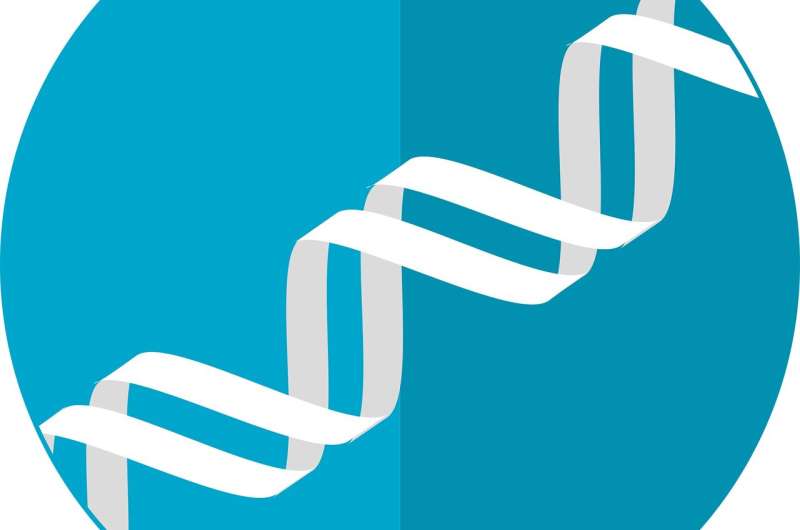This article has been reviewed according to Science X's editorial process and policies. Editors have highlighted the following attributes while ensuring the content's credibility:
fact-checked
peer-reviewed publication
trusted source
proofread
Researchers find some patients with Aicardi Goutières syndrome have normal IQ

In a landmark study, researchers from Children's Hospital of Philadelphia (CHOP) found that two separate objective assessment tools and nonverbal measurements of IQ can help assess cognitive function in children with Aicardi Goutières syndrome (AGS), allowing treatment teams to provide appropriate support and interventions.
These findings were recently published in the journal Neurology.
AGS is a rare genetic disorder that affects the brain, spinal cord, and immune system, causing severe neurologic impairment. It is a type of leukodystrophy, a group of conditions that affect the white matter of the brain. In AGS, the body's immune system turns on itself in a destructive way, targeting this white matter, or myelin.
Many children with AGS experience motor and expressive language deficits, rendering them unable to speak. In patients, these types of severe intellectual and physical impairments can create a sense of being "locked in" by their disease and pose significant challenges for families and clinicians to ascertain their cognitive function.
Until now, impairment in receptive language—the ability to understand words that you hear or read—and its level of impairment in patients with AGS has been nearly impossible to characterize with most common tools assessing IQ. However, these new assessments offer the potential to provide critical information about how these children, and potentially children with other leukodystrophies, process information.
"Children with AGS understand the world around them after they lose the ability to talk," said senior study author Laura Adang, MD, Ph.D., an attending physician in the Neuroscience Center at CHOP who specializes in the care of children with leukodystrophies such as AGS. "We listened to our families who knew their children understood them, and we knew IQ tests that required movement were not a fair method for assessing the cognitive function of these children."
In this study, researchers utilized two different tests to measure neurologic function. The Leiter International Performance Scale-3rd edition (Leiter-3), a validated tool to measure non-verbal cognition that is less dependent on motor skills and speed, was administered to children with AGS.
Parental assessment of function was captured by the Vineland Adaptive Behavior Scale (VABS)-3rd edition, which helps measure personal and social skills. Results of these two assessments were then compared with AGS Severity Scale scores, a test which captures overall neurologic abilities.
A total of 57 pediatric patients with AGS were included in the study. The median IQR Leiter-3 score was 51 among the 37 patients who were able to complete the assessment. The VABS-3 assessment found that motor skills were more impacted than communication, daily living skills and socialization.
The researchers noted a correlation between VABS-3 assessment domains and the results of the Leiter-3 assessment. Within each gross motor and fine motor category of the AGS scale, a subset of children scored within a normal IQ range.
"This is a transformative study that has huge implications on how anyone providing care, service or education should think of AGS as a disease," Adang said. "Traditional outcome tests that don't measure cognition were not giving these children enough credit. With information like this, we have a better understanding of how to design future clinical trials in a way that is incredibly patient-centric."
"As we have improved the way many leukodystrophies are diagnosed and treated, we are now able to take valuable information from our patient communities and study these disorders in ways we could not have envisioned just a few years ago," said study co-author Adeline Vanderver, MD, Program Director of the Leukodystrophy Center and Jacob A. Kamens Endowed Chair in Neurologic Disorders and Translational Neurotherapeutics at CHOP.
"While this study examined just one leukodystrophy, we believe this method could help us recognize cognition and intelligence among patients with other leukodystrophies."
More information: Francesco Gavazzi et al, Nonverbal Cognitive Skills in Children With Aicardi Goutières Syndrome, Neurology (2024). DOI: 10.1212/WNL.0000000000209541



















